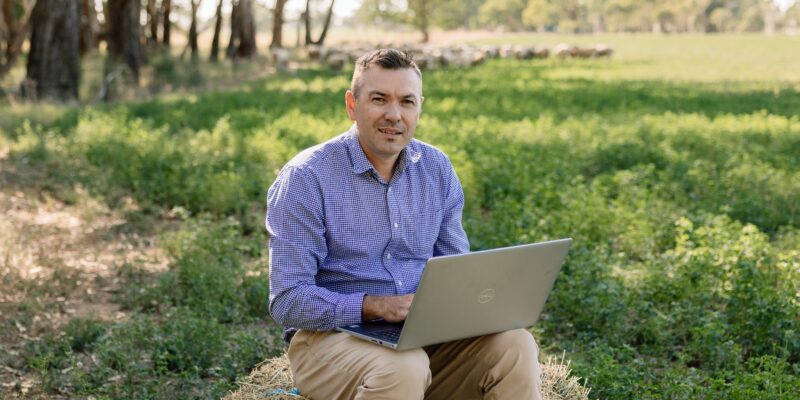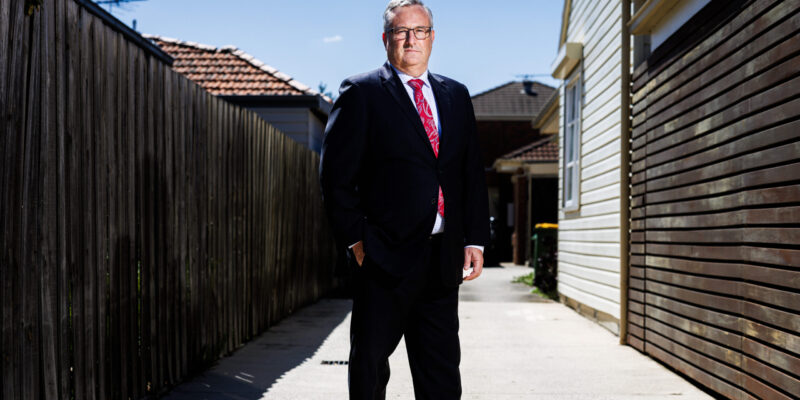What’s it like running a rural conveyancing firm
As more and more Australians are moving out of the unaffordable capital cities, rural conveyancer Luke Seve talks through the intricacies of running his firm in Dubbo.

AUSTRALIAN CONVEYANCER: Tell us about your career to date
LUKE SEVE: I studied at Southern Cross University in Lismore and came away with a double degree in law and criminal justice studies in 2009. But I had no clue what conveyancing was. Though I landed in at the deep end when I started working for a solicitor, processing 84 properties to go under the hammer – out in Bourke – for unpaid rates. So, I had a lot to do. Then I fully transitioned to conveyancing when the owner of the business retired. I could have gone on to qualify as a solicitor, but the most practical and prudent thing for me to do was to get a conveyancing licence.
That was 2012. Now we’re at 2025 and I am happy with the niche I have found in conveyancing. I like being an expert in my small area rather than a generalist solicitor.
AC: What’s that past decade and a bit been like for you and the business?
LS: In the COVID era surge, we were very active in terms of property turnovers. Real estate agents were very busy, and conveyancers were very busy. At the end of 2019-2020, things really took off. It almost got to the point where I did turn away a couple of people because I was that busy. I just couldn’t, couldn’t cope. That’s a rarity. I usually don’t turn away work.
AC: Although we hear about the growing number of people moving to the regions, it hasn’t always been rosy.
LS: When I transitioned from Bourke to Dubbo in 2014 – and pretty much from 2015 onwards – I took an interest in first time buyers, because I know that it can be daunting.
Now the landscape has completely changed.
Back then, first time buyers were able to get into the market when the average sale price was about $480,000 in 2015, here in Dubbo.
That remained a fairly constant up to around 2020 – but now we’re looking at $700,000 plus – for the same property. So, first home buyers have gone off the radar unless they’re working in the mines. They’re the only first-time buyers who are serviceable. As a result, the cost of building in general has gone up substantially, along with the increase in the price of a vacant parcel of land.
It’s really put a dent on the market. There’s a lot of brand-new brand homes sitting on the market at the moment here in Dubbo. Buyers are typically Sydney investors. When I get calls, they are from Sydney with someone telling me they’re looking at expanding their portfolio.
AC: What are the differences with rural transactions?
LS: It takes a little bit of getting used to rural transactions. There’s a lot more involved, associated with the land purchase. You’ve got water access licences in the mix with those larger rural properties in Western NSW. There are perpetual leases, where there’s a 99-year lease from the Crown, where you have to apply for the consent of the Minister to be able to transfer the property. That takes a minimum six weeks, but more realistically 12 weeks. With these protracted transactions, you’ve also got the potential for the Minister not to be happy to transfer the property unless certain works are put in place – like repairs boundary fences. So you might have kind of conditions attached to a minister’s consent where it adds a level of complexity to the transaction. That brings into play the prospect of who is going to bear the cost of the fence repairs. Is the vendor going to wear it? Or is it going to be split up 50/50 with the incoming buyer? It’s more work, but it’s more interesting wrestling with particular transaction and the additional special conditions.
You have to consider what issues you address. If you’re acting for a vendor, are you going to cover the possibility that boundary fences are not on the correct boundary.
Are you going to cover the stock average carrying capacity? Are you going to address the fact that the vendors have livestock on the property until settlement? There’s also a lot of plant and equipment improvements. Or sheds not being approved.
AC: So you’re dealing with big numbers – and bigger problems?
LS: While $3,000,000 and $9,000,000 might not sound as much to those in Sydney or Melbourne, every transaction hides potential costly banana skins. One – where the negotiations fell over – reminds me of the complexity, and if I had the right level of insurance. It was from a developer in Melbourne wanting to buy in the far West of NSW. The reason why there was such high value attached to it was because there was carbon farming connected to the property, which had the potential to generate an annual income of $500,000 per year for the next 20 years.
That was the nature of the transaction. But we highlighted some fairly serious issues around the money being used for the purchase – and it fell through.
AC: What do you think about the Anti-Money Laundering and other compliance issues facing conveyancers?
LS: The foreign resident capital gains withholding clearance certificates are now mandatory for every transaction, every sale, which is a bit of an issue, mainly because I’m often finding that people want to settle very quickly. But this 28-day window that the ATO says is involved in getting this certificate means we have to set client expectations – because of the potential lag for a transaction.
Another thing that does concern me with regard to AML and cyber is the fact that clients seem to be the ones causing the problems – in that they don’t have sufficient safeguards in relation to their own email accounts.
During COVID, I transitioned to working from home predominantly.
So I do a lot of online verification of identity, a lot of DocuSign and obviously E-settlements. Often, I don’t meet my clients. But that has me thinking maybe I need to go back face to face. If someone can use AI to change someone’s face so that it looks like the client who’s on video, it’s an issue.
AC: What words of advice would you give to other conveyancers?
LS: There’s often a lot of pressure from real estate agents and clients to get things done yesterday. But my advice is never take shortcuts. If you need GST advice because you’re not sure whether there’s going to be GST at settlement, don’t neglect that. Stand your ground. Don’t be afraid to do the right thing would be my advice.
Don’t succumb to the pressure of urgency.
The other thing that sticks out is that we can’t provide financial advice.
Often clients ask me things that cross over into what would come under advice.
So sticking to what your legislation permits you to do is important.




